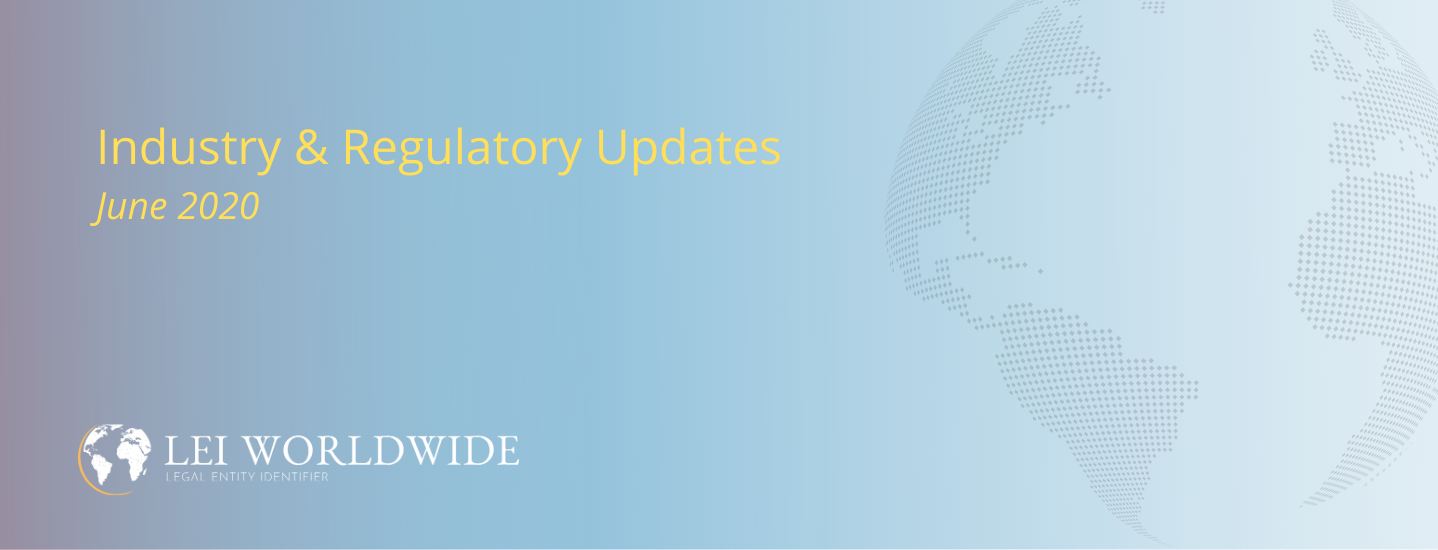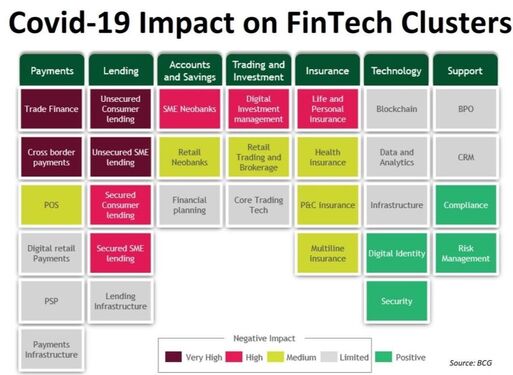Need for securityDuring the COVID-19 pandemic we have seen a number of developments within the LEI and identity industry. Firstly, the importance of the industry has not only been increased, but the comprehensive need for a more secure digital identity became more apparent. Fraud cases have risen exponentially since the beginning of March. Online hackers are looking to take advantage of companies working from home as they struggle to adapt to lockdown and seek to implement new processes and payment procedures. Over £16m has been lost in the UK due to online shopping fraud since the onset of COVID-19. There has also been a 33% surge in attempted cases of financial fraud. The bulk of these were in the asset financing sector, an area which has already been identifier as one that can benefit greatly from adopting an LEI check as a part of their customer onboarding KYC processes. Banking is another area which can benefit greatly, as has been highlighted in recent research conducted by McKinsey. Fraudulent credit card and loan applications can be easily detected by linking the applicant to an LEI, or if one has not been yet obtained it can raise a question mark. This greater need for security can be clearly seen in the below chart. The only FinTech clusters which benefitted during lockdown were security related. IRDAI asked not to sanction loans without an LEIIn light of the above developments, some regulators and financial institutions are turning to the LEI to add an extra layer of security to their internal validation processes. The Insurance Regulatory and Development Authority (IRDAI) of India has asked insurers not to grant loan renewals or amendments if the borrowers have not been identifier by way of a Legal Entity Identifier before 30th June 2020. The IRDAI also asked the insurers to advise their corporate borrowers with a large exposure score to obtain an LEI number by mid-Summer. In a circular released by the IRDAI, the LEI Code is to be stored in their records and specify the same while reporting the transactions executed with such corporate borrowers. You can find the circular here. ING Banks develops method of identifying transactions using LEIsIn October 2018 the Financial Action Task Force expanded its AML Mandate to include VASPs. This mandate is known as the Travel Rule Protocol. The Netherlands based lender ING Bank, developed a protocol to assist with the Financial Action Task Force (FATF)'s Travel Rule, as a part of its AML mandate. This will now allow VASP (virtual asset service providers e.g Coinbase) members a way to query for the existence of address entries which will be defined by a PKI (Public Key Infrastructure) and Legal Entity Identifier (PKI). This will allow the secure tracking of digital asset transfers such as cryptocurrency. The solution has already been supported by large corporations such as Standard Chartered Bank and Fidelity Digital Assets. Malcolm Wright, head of the AML working group at Global Digital Finance suggests that the LEI (which could be used in conjunction with Mifid II) could be used when issuing a VASP code to all market participants. Please see CoinDesk for more information. GLEIF open US based officeAccording to the press release issued, they have made the move across the pond in order to increase their 'on the ground' engagement in operations in the USA, the country with 13% of all LEIs and the lions share of issued Legal Entity Identifiers. This will serve to enhance their main goal of educating industry members on the importance of the LEI System and increasing voluntary adoption rates of the Legal Entity Identifier. The initiative will be headed by Karla McKenna of GLEIF and will be joined by Peter Warms, formerly of Bloomberg. GLEIF’s new US office brings us closer to our stakeholders in this important market at this critical time. LEI issuance in the US is the highest across all countries globally, and we recognise the importance of accessible and engaged GLEIF resources on the ground to help drive LEI issuance beyond regulation. This is especially important as we seek financial institutions globally to partner with us on pilot programs, to trial wider LEI adoption and to work with us in exploring how financial services firms can become active participants in LEI management. Our move into North America sends a clear message to our banking industry stakeholders in the region: GLEIF is here to help the sector benefit from broader LEI integration across business banking lines. We are here to assist you.” - GLEIF
0 Comments
|
LEI WorldwideThe views expressed in this blog belong to LEI Worldwide. Archives
April 2022
Categories |
Facilitating the global allocation of LEI numbers.
LEI Worldwide facilitate entity identification in the global financial system, capital markets and private sector. We make the process accessible and simple for Legal Entities to obtain Legal Entity Identifier numbers. By doing this we help facilitate the global allocation of LEI numbers. It is our mission to be the one point of contact globally between Legal Entities & LOU’s and ensuring the LEI becomes the Worlds most important identifier.
Services |
Company |
|
UNITED STATES | DUBAI | GERMANY | NETHERLANDS | UNITED KINGDOM | AUSTRALIA | BRAZIL | CANADA | FRANCE | SPAIN | HONG KONG | CHINA | INDIA | ITALY | SWEDEN | BVI | MALTA | UNITED ARAB EMIRATES | MEXICO LUXEMBOURG | SOUTH AFRICA | BELGIUM | SINGAPORE | JAPAN | MAURITIUS | CAYMAN ISLANDS | TURKEY | PORTUGAL | PANAMA | DENMARK | CYPRUS | KENYA | IRELAND | NEW ZEALAND | GREECE | SEYCHELLES







 RSS Feed
RSS Feed









